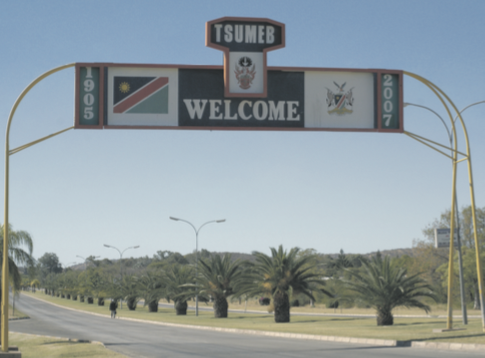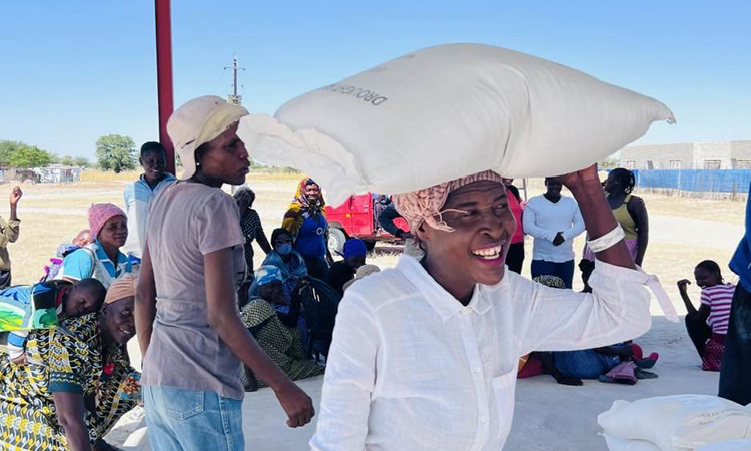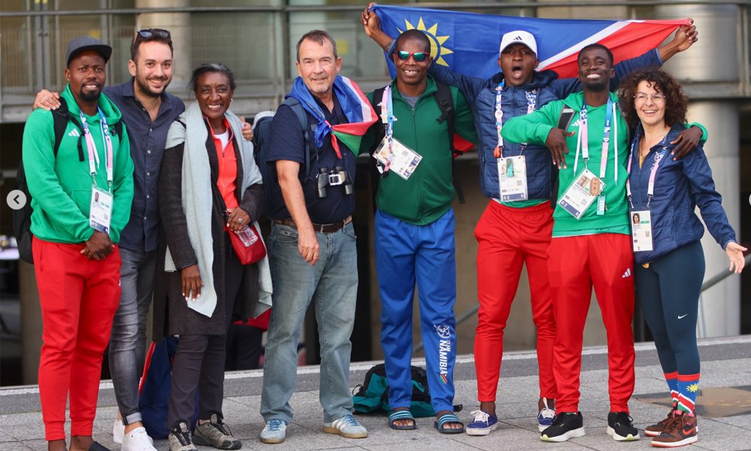THE town of Tsumeb, strategically situated about halfway between Windhoek and northern Namibia, is a place with two faces.
One part of the town where the rich and powerful live, is clean and civilised. Name it, and you will get it – tarred streets, street lights and better houses, not to mention clean, potable water.
The other parts, Soweto and Kuvukiland, are a different proposition.
This is where the majority live and lead a forgotten existence. The people lack basic services such as proper ablution facilities and enough running taps. Ironically, some residents of Soweto draw drinking water from a toilet, and really feel that they are being neglected by their municipality.
They expressed sentiments that they are only remembered during election times.
visited the Soweto and Kuvukiland locations, where residents complained of feeling left out as if they were not part of an independent Namibia.
“Look at those toilets. That is where everyone goes when nature calls, but they are not in a good condition,” explains Maria Iimene of the Soweto location in reference to two old public toilets with showers for men and women.
She says they were built during the colonial era, and she has been using them since independence when she became a resident of the location.
She says the situation has been the same since, and accuses the municipality of turning a blind eye to their plight because the toilets are not cleaned regularly, despite being overwhelmed by the number of people using them.
“We need change, and the municipality should see how they can get us out of this situation,” she added.
These toilets are mostly used by shack dwellers, or those whose water had been disconnected for the non-payment of municipal bills.
The toilets are filthy and putrid.
“This is how we live, Brother. You either take it, or move out. But where do you go if you work here?” Tomas Angula narrated to , soap and face-cloth in hand, as he walked to take a shower in one of the toilets.
The shower he intends to use is in one of the toilets, and he says when the toilets become dirty, people relieve themselves in the shower cubicle.
“If you want to take a shower and there is excrement on the floor, you look aside and shower. If you have a soft heart, you bath in your room,” he explained.
Another resident, Joseph Heita, said children are exposed to diseases as they fetch water from the same toilets.
“This is not an ideal place for children to even go in. As they come to get water, they step on the excrement,” he said, pointing to faeces scattered all over the area.
Children as young as three could be seen navigating their way to the water taps inside the toilets.
Heita said although they have a residents’ committee which takes their concerns to their councillor.
Things hardly changed.
“It has been a long time that we have been complaining and asking for new toilets, but nothing happens. The mayor and councillors do not care as they all live in town.We are left to live like dogs in an independent country,” he fumed.
Maria Shipandeni, who has been employed by the municipality for 13 years to clean the toilets, does not have kind words for the town council either.
She said although she was at first committed to her job, a lack of proper and protective gear and a meagre salary have brought her morale down.
“I work in sh**t all the time. I have no boots, gloves or even a uniform. The municipality does not care about me. But I have no choice. I need bread,” she said, adding that she is not even provided with masks.
She said long periods of exposure to her dirty working environment without protective gear have resulted in her having a swollen face and feet. She claims doctors could not diagnose her illness.
The residents also fume over the municipality’s failure to remove refuse regularly, resulting in residents throwing rubbish on the streets when dustbins overflow. They say this is despite paying N$70 for refuse removal. “Where do they take the money? I thought it is for the removal of the rubbish,” Norman Amadhila said, stressing that at times, three weeks pass without refuse removal trucks making the rounds.
The situation in Kuvukiland is worse.
There are no toilets.
Only one water point serves all the residents, some of whom have to walk for a kilometre to reach it.
Stay informed with The Namibian – your source for credible journalism. Get in-depth reporting and opinions for
only N$85 a month. Invest in journalism, invest in democracy –
Subscribe Now!






